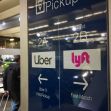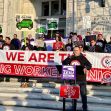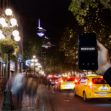A time before ride-share apps seems like a distant memory, but California law may be steering the state back in that direction this November. Californians will vote on Proposition 22, a ballot measure that will determine whether companies like Uber and Instacart will endure on the West Coast.
The App-Based Drivers as Contractors and Labor Policies Initiative, known as Proposition 22 (or “Prop 22” for short), is a corporate-funded response to a state law passed last year that kept delivery and ride-share apps from considering their workers as independent contractors rather than employees. The law, California Assembly Bill 5 (AB 5), entitles workers to more traditional employment standards, like minimum wage, sick leave, and labor union rights.
When an audit of businesses in California revealed stark numbers of “misclassified” workers, such as ride-share drivers categorized as “independent contractors,” Assembly Bill 5 was passed to address the undercutting of employee benefits. It went into effect in January 2020. Although it was initially viewed as a progressive victory for workers’ rights, popular apps in today’s “gig economy” have balked at the statute’s consequences.
“…(E)verything that we have built, is based on this platform that brings earners and people who want transportation and delivery together,” Uber CEO Dara Khosrowshahi said at an event this August. “We want to be in California, but if the court case comes in then we’ll have to shut down.”
The companies were granted an emergency temporary stay on August 20, 2020, extending a prior ten-day injunction and halting their promise (or rather, threat) to pull business from the state overnight.
The affected companies Uber, Lyft, Instacart, Postmates, and Doordash have now funneled so many millions of dollars into dodging AB 5’s implications that Prop 22 now boasts the most expensive price tag ever seen on a ballot measure in California—over $180 million. Some have allegedly even offered their workers monetary incentives to denounce reclassifying their employment. By comparison, labor unions and advocates of AB 5 have contributed less than $5 million to oppose Prop 22.
The tech companies contend that the law would be so unfairly applied and detrimental to their business in the state—creating higher costs of paying workers and less flexibility and service available to both drivers and customers—that they would be forced to shut down immediately statewide. On the other hand, advocates for AB 5 cite California’s significant annual losses from
payroll taxes and social benefits to balance the overall lower income rates.
Some lines of business won exemptions to AB 5 before it passed. Newspaper organizations were granted an extension before complying; medical offices, real estate agents, financial advisors, and lawyers are among those who passed the law’s scrutiny. The app corporations have adamantly sought similar indemnities.
The exclusions come on account of Dynamex Operations West, Inc. v. Superior Court (2018), a California Supreme Court decision, which set up a “test” to determine employee eligibility versus independent contractor status—a line that has seemed blurred with the modern phenomenon of gig work. Other states have begun implementing similar assessments.
The test has three parts to determine independent contractor status: first, the workers aren’t directed or controlled by the company while operating business; second, the work must be “outside the usual course” of business for the contracting corporation; lastly, the workers must be engaged in similar work irrespective of the company in question.
Uber Chief Legal Officer Tony West was convinced the apps would pass the test. “Just because the test is hard does not mean we will not be able to pass it,” he said after the passage of AB 5. “We continue to believe that drivers are properly classified as independent.”
To help their case, Uber began testing new features to emphasize the ‘independent contractor” nature of the app, expanding fare control to drivers and rethinking some policies to lend a more apparently independent quality to their workforce.
But California Attorney General Xavier Becerra sued both Lyft and Uber this summer, asserting that they continue to misclassify employees, thereby violating AB 5—and on August 10, 2020, San Francisco Superior Court Judge Ethan Schulman ruled in agreement. He wrote that the companies were “fl(ying) in the face of economic reality and common sense.” He initially gave Lyft and Uber ten days from the ruling to comply and start reclassifying drivers as employees, but this temporary stay will allow them to hold off until at least the November elections.
Suppose the state does successfully vote Prop 22 into actuality. In that case, the State Senate and Assembly will need a nearly insurmountable seven-eighths majority (87.5 percent, along with the governor’s signature) to amend the law or pass any related legislation.
Though AB 5 would be vastly beneficial to workers, the fear of potentially losing these services statewide is enough to paint the corporate compromise of Prop 22 in a less harsh light than it may deserve. With such sizeable finances backing the proposition, even court orders and the Attorney
General may prove powerless to curb corporate power in the age of Uber, Lyft, and all the apps we’ve forgotten how to live without.






